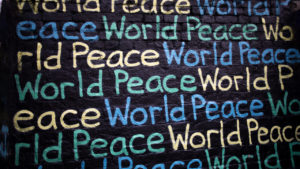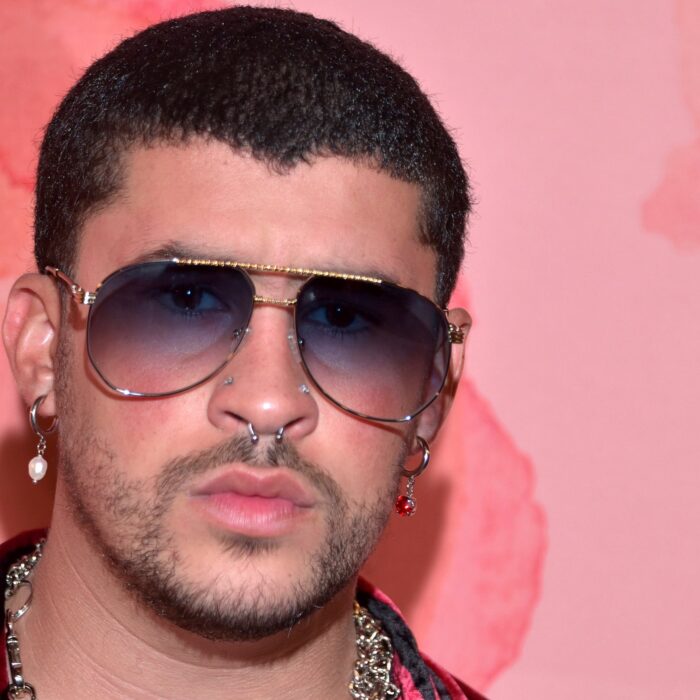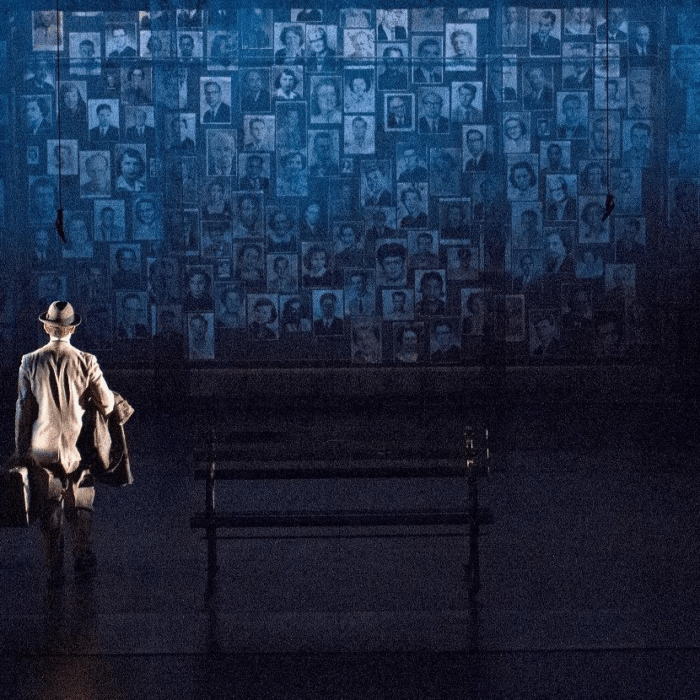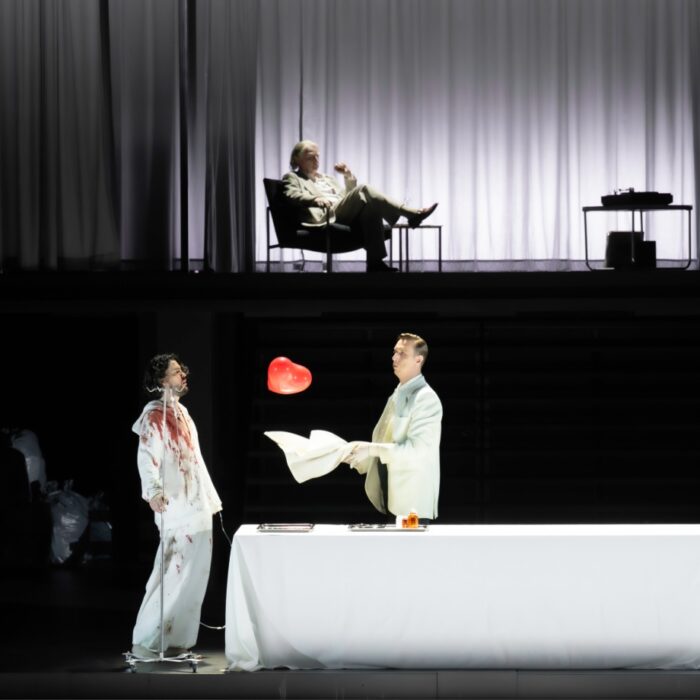
Criticism on Fridays: Stop the War (Between Us)
Can Art Bring Together What War Has Torn Apart?
By Polina LyapustinaOn Thursday night, Feb. 24, 2022, hostilities began in Ukrainian sovereign territory. I dread saying it, but it was neither sudden nor unexpected; it was rumored even to be a bit delayed. Yet, an unpardonable war crime against humanity has occurred.
And again, the lives of real people will pay for it.
Choose Your Side
We all read short sentences describing such invasions in the history books—time, place, military equipment. But then, there are always many long sentences and even paragraphs describing how people reacted. Frankly, I always noticed more disturbing signs in these sentences. So soon and so easily, the big harmful event becomes just a bloody background.
War has broken out, and today, we are choosing and stating our sides. And anyone who is not on our side is an enemy. And so we fight. And in our modern world, we have 1,000 fronts—in our society, art, music. Unfortunately, this only means more people will fight, and more aspects will be ruined.
When today I see artists and musicians voicing their support for Ukraine, I agree with them fully, and I appreciate so much their decision not to be indifferent. But shortly after, I see many of them picking their enemies, and they don’t mean Putin or his regime. I see people whom I respect and support shaming and judging other artists and musicians in Russia who are in a very different situation and live a different life. And this is where I get scared and devastated.
Looking Over the Wall
After the October Revolution of 1917, Russia went through three huge waves of emigration, which markedly fueled the development of world culture. And the last of these three is not yet over.
Those, who, like me, have left the country in the last 10-15 years, always speak (among us and to the world) about cultural and intellectual degradation in Russia. We talk about the control over universities and the lack of funding for cultural institutions. Still, we modestly never mention how the country has been affected by losing people like us while we judge those who stayed. And those might be the last hope for Russian people to rise up and remember who they are with the power of art.
But now, the Russian people are Putin’s victims too. They are constantly subjected to cuts in the most important things and brought up in unreasonable rigor, like delinquent children. In these last decades, they learned that freedom is destructive, education is excessive, and the world is so dangerous that it’s better not to look at it. The strategy has worked out, and today most of them are a perfectly manageable crowd (others—have left). Yes, many of them differ from us, yet they are not our enemies.
And I don’t think that here in Europe, we help them, no matter how angry, determined, and loud we are. On the contrary, we harm these people by blaming artists who stay in their country. We judge their choice to live in Russia according to the Russian laws. We call them collaborators for accepting the support and being active. We prefer to see only how they’re connected to Putin, forgetting to see how they’re connected to the audience.
Not Everyone is a Dissident
Just think about Denis Matsuev, now constantly blamed by every modern Russian dissident for collaboration with the government. Excuse me, but I cannot agree and shame Matsuev if I only see the list of his real deeds in the last 20 years. And honestly, I don’t want to count how much he earned for that; it’s not my business. But I can clearly see the number of educated children, people in distant regions who were given an opportunity to attend amazing events, and sold-out halls with great concerts that he produced or organized himself—in Russia.
Do you want to blame or fight him?
What of the workers at the national theatres who are cautious rather than courageous and don’t protest at all but serve? They stay silent, but they stay active. They work. But we don’t want to hear what they say about their work. Yet their work speaks exactly our language! Don’t we understand Prokofiev, Gubaidulina, or Shostakovich? We can be arrogant as long as we want and think that we do more sitting on the other side of the new wall and talking loudly. They will not care because they do not speak to us.
The artists, who many respected musicians blame on their FB pages, work and talk with their music to the Russian people. Staying in their country probably made their life more difficult, but it left hope for music to be played and for culture and education in Russia not to fade away fully. For this, they will not protest; they will collaborate.
And no one will write their names on the monuments when another regime is overthrown. But when you, my dear brave Europe- and US-based artists, return to Russia with concerts, people will still appreciate and adore the art because those “collaborators” stayed with them in these hard times and shared it with people.
Sounds of Music
And when this nightmare is over, and I know it will happen, we will tell Russian people that artists who supported Putin were our enemies too. And when people talk, they will probably agree with that, but somewhere in their hearts, they will remember a dark, cold winter night when listening to Bernstein. The music saved them from being numb, warmed their hearts, and for only a moment let them forget that their country recently started a war. But most importantly, the people who brought them this music were never their enemies.
So today, using my so comfortable status as a European resident, I want to speak loud and openly. And I’m saying not the true and obvious refrain of “Stop Putin,” but “Stop the war between us.” Don’t you see it is this new wall that has already made us blind and deaf to each other? It has separated us and made us enemies while we were and are and should always be on the same side—the side of art and music and peace. And never forget that these great values are meant not only for the free and liberal, but for all people, especially those who are now deprived of safety, like the people of Ukraine, or devoid of will and voice, like people of Russia.
Today, I saw a lot of fear and hatred. And there is more to come. And I’m angry, myself, but accepting this emotion, I certainly know that it leads me nowhere. Instead, today I want to appreciate.
I want to appreciate people who stand for their freedom in Ukraine, appreciate Russians who are shocked and are asking questions today, and appreciate the people who gave up their fear and hatred to play music and sing on stage today, anywhere in the world.
And I appreciate three late orchestral works by Sofia Gubaidulina, which I listened to instead of reading news and writing angry posts. And that is how I know that music can save us all.
In a world with two poles (again), we will now be (again) unbearably different. As a result, we often won’t understand and appreciate each other. But maybe, sometimes we should just stop talking, stop shouting or posting, and just keep the music playing, whoever and wherever we are.
Categories
Editorials

